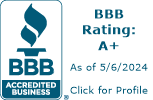Having a mortgage can be a huge burden, and paying it off may be the first item on your financial to-do list. For those approaching retirement, the most common question I hear is… “should I pay off my mortgage?” But competing with the desire to own your home free and clear is your need to invest for retirement, your child’s college education, or some other goal. So how do you choose?
Evaluating the Opportunity Cost
Let’s assume that you have a $300,000 30-year mortgage at 4%. Over the life of the loan, you would pay $216,609 in interest charges. For simplicity, lets also assume you do not itemize and take the standard deduction on your tax return. With the recent 2018 tax law changes, many taxpayers are finding themselves no longer itemizing.
Question: Should you pay off the mortgage or invest the money?
Total Wealth Planning Tip: Don’t always follow your emotions.
To determine if you would come out ahead if you invested your $300,000 instead, start by looking at the after-tax rate of return. Let’s assume your after-tax rate of return is 6%, conservatively. After 30 years, $300,000 at 6% grows to $1,723,047. Clearly, a substantial difference between the potential earnings and the cost of borrowing.
Keep in mind that the rate of return you’ll receive is directly related to the investments you choose. All investing involves risk, including the possible loss of principal, and there can be no assurance that any investment strategy will be successful. Investments with the potential for higher returns may expose you to more risk, so take this into account when making your decision.
Other Points to Consider
While evaluating the opportunity cost is important, you’ll also need to consider many other factors. The following list of questions may help you decide which option is best for you.
- What is your mortgage interest rate? The lower the rate on your mortgage, the greater the potential to receive a better return through investing.
- Do you work with a wealth advisor? What is the cost of investing? Could there be a potential conflict of interest if you are advised against paying off your mortgage?
- How long do you plan to stay in your home? The main benefit of pre-paying your mortgage is the amount of interest you save over the long term; if you plan to move soon, there’s less value in putting more money toward your mortgage.
- Do you have an emergency account to cover unexpected expenses? And keep in mind that if your financial circumstances change – if you lose your job or suffer a disability, you may have more trouble borrowing against your home equity.
- How comfortable are you with debt? If you worry endlessly about it, give the emotional benefits of paying off your mortgage extra consideration.
At Total Wealth Planning we help our clients every day answer these important and at times stressful questions. Who’s helping you?
Financial planning is complex and requires the guidance of a trusted and experienced advisor, such as a fee-only Certified Financial Planner™ (CFP®), who plans comprehensively, and with a complete understanding of your particular concerns and goals in life.
About the Author: Chris Allen, CFP® is a wealth advisor at Total Wealth Planning, a fee-only fiduciary financial planning firm in Cincinnati (Blue Ash), Ohio. Chris assists clients in creating a sound financial future while serving on the Firm’s Investment Policy Committee and technical financial planning team. Prior to joining the Firm in 2015, Chris worked as a Certified Financial Counselor with a non-profit financial counseling organization, where he consulted with numerous families and helped establish sustainable spending plans. Chris can be reached at callen@twpteam.com.







